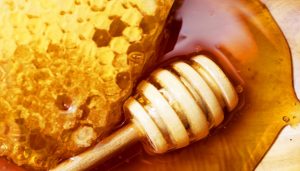03
Nov
Lawsuit Challenges “Pure” and “Natural” Label on Honey Contaminated with Glyphosate
(Beyond Pesticides, November 3, 2016) Beyond Pesticides and the Organic Consumers Association (OCA), represented by Richman Law Group, filed a lawsuit yesterday in Superior Court in the District of Columbia against Sioux Honey Association, for the deceptive and misleading labeling of its Sue Bee and Aunt Sue’s honey brands. The suit follows news that Sue Bee honey products labeled “100% Pure” and “Natural” tested positive for glyphosate residue. Glyphosate, a known endocrine disrupter and, according to the World Health Organization, a probable human carcinogen, is the active ingredient in Monsanto’s Roundup ® herbicide.
“A consumer seeing the words ”˜Pure,’ ”˜100% Pure’ or ”˜Natural’ on a honey product would reasonably expect that product to contain nothing other than honey,” said OCA International Director, Ronnie Cummins. “Regardless of how these products came to be contaminated, Sioux Honey has an obligation to either prevent the contamination, disclose the contaminati on, or at the very least, remove these deceptive labels.”
on, or at the very least, remove these deceptive labels.”
Jay Feldman, Executive Director of Beyond Pesticides, said: “We join and support those beekeepers who are working to stop hazardous pesticides uses that cause widespread contamination of crops, including honey. Until U.S. regulatory agencies prohibit Monsanto and other manufacturers of glyphosate from selling pesticides that end up in the food supply, we need to protect consumers by demanding truth and transparency in labeling.”
The lawsuit specifically cites Sue Bee Clover Honey, labeled “Pure”; Aunt Sue’s Farmers Market Clover Honey, labeled “100% Pure”; and Aunt Sue’s Raw Honey, labeled “100% Pure” and “Natural. Plaintiffs cite testing, conducted by the FDA, of honey that found 41 ppb (parts per billion) of glyphosate.
The U.S. Environmental Protection Agency (EPA) has not set a tolerance (or acceptable level) of glyphosate in honey, raising questions about the legality of any level. EPA was supposed to rule in 2015 on whether or not to re-register glyphosate, but has failed to complete the review process on schedule.
Beyond Pesticides submitted comments to EPA in 2009 during the glyphosate registration review period, asking them to cancel glyphosate’s registration due to the human and environmental risks, as well as the availability of alternatives. In July 2013, Beyond Pesticides, along with twenty-two other organizations, called on the EPA not to increase the allowable residue limits for glyphosate on certain food commodities, asserting that an increase in glyphosate tolerances and associated increases in glyphosate use puts the public at additional, unreasonable risk. In 2016 Beyond Pesticides once again sent a letter to and met with EPA officials requesting the routine testing of glyphosate.
Beyond Pesticides advocates for an approach that focuses on safer alternatives that are proven effective, such as organic agriculture. Thus, the best way to avoid glyphosate residues in a wide range of food and drinks is to buy and support organic agriculture and the USDA organic label over conventional agriculture. Beyond Pesticides’ database, Eating With a Conscience (EWAC), provides information on the pesticides that could be present in the food we eat, and why food labeled organic is the right choice. EWAC also includes information on the impacts chemical-intensive agriculture has on farm workers, water, and our threatened pollinators.
Read the formal complaint here: www.beyondpesticides.org//assets/media/documents/Sue Bee Complaint Stamped.pdf.
See a copy of our press release here.
All unattributed positions and opinions in this piece are those of Beyond Pesticides.










